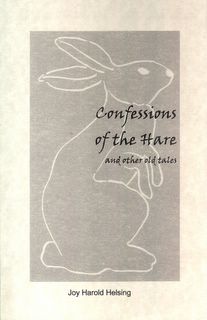
Revisiting C.S. Lewis -- If God is good and all powerful, why do we suffer?
By DAN BARNETT
Back in 1979, when I first read C.S. Lewis' "The Problem of Pain," the paperback was published by Macmillan and sold for just $1.25. Today there are a number of softcover editions; a popular one, sold by HarperSanFrancisco, is $10.95. Just recently I've reread the book (my old paperback has crinkled with age, but then so have I) and can heartily recommend it as a cogent -- and surprising -- defense of Christianity.
Lewis' specific focus is the so-called "problem of evil": If God is good and all powerful, why is there pain? Wouldn't such a God eliminate it? So if pain is real -- and it is -- maybe God is not.
Lewis' defense is surprising because rather than arguing that God exists because of some supposed order of the universe, he acknowledges that the world of nature is decidedly ambiguous -- or even downright hostile -- to any such "proof." His book begins with a litany of misery: Pain in nature, pain in human relationships, the death of civilizations.
In his days as an atheist this was Lewis' own argument against a "wise and good Creator." Now, looking back, Lewis realizes that "the spectacle of the universe as revealed by experience can never have been the ground of religion: It must always have been something in spite of which religion, acquired from a different source, was held." In other words, no great religion has ever made, in its beginning, "an inference from the course of events in this world to the goodness and wisdom of the Creator."
That's a bit startling in our own time, especially with proponents of what is called Intelligent Design, such as William Dembski, maintaining that the natural world shows evidence of a Designer, and evolutionary biologists, such as Richard Dawkins, arguing that random changes over time mimic "design" and that therefore there is no Designer. Lewis would say both are off track.
Instead, Lewis traces the origin of religion to other factors: the numinous (the sense of awe at "something more" in the universe than just the material); morality; and, especially in Judaism, the revelation that the "something more" was also the guardian of morality, the "righteous Lord."
Finally, there is the historical Jesus, who "claimed to be, or to be the son of, or to be 'one with,' the Something which is at once the awful haunter of nature and the giver of the moral law. ... Only two views of this man are possible. Either he was a raving lunatic of an unusually abominable type, or else He was, and is, precisely what He said. There is no middle way. If the records make the first hypothesis unacceptable, you must submit to the second. And if you do that, all else that is claimed by Christians becomes credible -- that this Man, having been killed, was yet alive, and that His death, in some manner incomprehensible to human thought, has effected a real change in our relations to the 'awful' and 'righteous' Lord, and a change in our favour."
For Lewis the bottom line is this: "Christianity ... is not a system into which we have to fit the awkward fact of pain: It is itself one of the awkward facts which have to be fitted into any system we make. In a sense, it creates, rather than solves, the problem of pain, for pain would be no problem unless, side by side with our daily experience of this painful world, we had received what we think a good assurance that ultimate reality is righteous and loving."
Lewis goes on to consider hell ("that fierce imprisonment in the self" in which the doors are "locked on the inside") and heaven. His vision of heaven -- "All that you are, sins apart, is destined, if you will let God have His good way, to utter satisfaction" -- is one of the most extraordinary descriptions I've ever read.
"The world," he writes, "is a dance in which good, descending from God, is disturbed by evil arising from the creatures, and the resulting conflict is resolved by God's own assumption of the suffering nature which evil produces." In Christ's own suffering lies our redemption. In his resurrection lies the certainty that "every tear shall be wiped away." And we shall be fully ourselves at last.
Dan Barnett teaches philosophy at Butte College. To submit review copies of published books, please send e-mail to dbarnett@maxinet.com. Copyright 2005 Chico Enterprise-Record. Used by permission.


